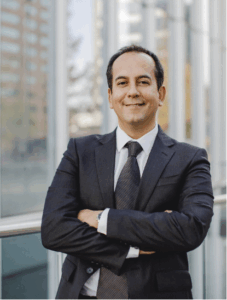 This is the sixteenth in the series of short statements from candidates in the coming CODATA Elections at the General Assembly to be held on 17-18 October 2025. Rodrigo Roa is a candidate for the CODATA Executive Committee as an Ordinary Member. He was nominated by Chile.
This is the sixteenth in the series of short statements from candidates in the coming CODATA Elections at the General Assembly to be held on 17-18 October 2025. Rodrigo Roa is a candidate for the CODATA Executive Committee as an Ordinary Member. He was nominated by Chile.
Rodrigo Roa: Candidacy for CODATA Executive Committee
My professional path bridges law, science policy, and data governance. As Executive Director of the Data Observatory, a public–private foundation co-founded by the Government of Chile, Amazon Web Services (AWS), and Adolfo Ibáñez University, I lead initiatives that transform large and complex datasets into public value.
My work is grounded in building infrastructures that make data usable, trusted, and interoperable. Under my direction, the Data Observatory recently developed Chile’s National FAIR Data Policy, approved by the National Agency for Research and Development (ANID). To put these principles into practice, we created the SURDATA Alliance, a Latin American network for interoperability and data governance that connects public agencies, universities, and research centers.
I also serve on the Strategic Committee of LatamGPT, a large-language-model initiative led by the National Center for Artificial Intelligence (CENIA). There, we are developing regional datasets and computing infrastructure to ensure that artificial intelligence in Latin America reflects our languages, contexts, and values.
This year, I had the privilege of convening the first CODATA Committee in Latin America, a step that symbolizes our commitment to make global data collaboration multilingual and inclusive. Science and data know no borders, and language should never be a barrier. My goal is to help emerging economies implement FAIR principles, and to connect CODATA more closely with governments, academia, and industry across the region.
Beyond data policy, I’m also a professional drummer—a lifelong rock musician who believes rhythm is another form of connection. Music, like data, is a universal language that brings people together. I hope to bring a bit of that Latin American rhythm and collaborative spirit to CODATA’s global mission.
It would be an honour to serve on the Executive Committee, to represent Latin America’s growing data community, and to help CODATA’s work resonate from Santiago and beyond.
